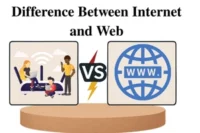Technology in Education & Careers: 10 Questions Answered About Learning and Jobs
Published: 8 Sep 2025
Technology is constantly transforming the world, particularly in the field of educational technology and its influence on jobs. Understanding the impact of technology on both learning and careers is crucial for success in today’s environment, from enhancing our learning to transforming the modern workforce.
In this article, we’ll address key questions surrounding technology’s role in education, careers impacted by technology, and its impact on job opportunities.

Questions About Technology Role in Learning
Here are some questions people mostly asked about the role of technology in education, Career and professional development.
1. Why should technology be used in the classroom?
Education technology plays a crucial role in enhancing the learning experience.
Technology in education enables developed and interactive instruction, making it simpler to accommodate different learning styles. With the recent development in virtual learning platforms and educational applications, students and instructors now have access to a variety of information and tools, which improves the educational process.
This technological shift in education also prepares students for careers that are increasingly influenced by technology, preparing them with the skills necessary to succeed in modern job opportunities.
Example: Innovative tools such as smartboards and educational applications enable students to explore subjects virtually, making courses more engaging and helping them better understand complex concepts.
2. How can technology help children nowadays in learning?
Technology helps children engage in learning through interactive and engaging platforms.
Children can acquire knowledge at their own pace using technologies such as tablet applications, educational games, and AI-powered instruction. This fosters a deeper understanding of subjects. These resources also help students prepare for future careers that will be influenced by technology.
Example: Educational apps like Duolingo utilize games to teach children new languages, while websites like Khan Academy offer free courses on subjects such as math and science, allowing children to learn at their own pace.
3. Will technology replace teachers?
Technology won’t replace teachers, but it will enhance their role in the classroom.
While AI and educational technologies may assist with office tasks, instructors continue to play a crucial role in nurturing emotional and intellectual development. Technology enhances the whole learning experience, empowering students for professional progression in a tech-driven environment.
Example: Teachers can also utilize technology, such as the Zoom app for meetings and Udemy-type apps for learning lessons. This use of technology makes teaching more efficient and relevant to students’ future careers.
4. How can technology help in success?
Technology plays a crucial role in personal and professional success by providing tools for learning and development.
Individuals can advance in their professions by gaining access to skills training in various disciplines through online platforms, applications, and technology-based education. It also helps professionals stay up-to-date with technological advances in the workplace and schools.
Example: Apps like Google Calendar help users stay organized and manage their time effectively, while platforms like LinkedIn enable professionals to network and discover new employment opportunities, thereby increasing their success.
5. How does a career in information technology evolve with innovation?
Careers in information technology are rapidly evolving with the advent of latest innovations.
Technologies like AI, cloud computing, and cybersecurity are creating new career opportunities. As new technologies emerge, IT workers must continually upskill and stay current to remain relevant in a rapidly evolving market.
Example: The rise of cloud computing has led to the growth of careers in cloud management
6. What is understanding technology’s impact on the workforce?
Understanding the impact of technology on the workforce helps professionals adapt to changes in their career paths.
Automation, artificial intelligence, and other digital technologies have transformed industries, reshaping the way we work. To remain competitive and relevant in today’s job market, employees must learn how to integrate technology into their roles.
Technology also provides learning opportunities that enable people to change careers or advance in their existing ones, contributing to overall professional success.
Example: Many people now work from home, utilizing collaboration tools such as Zoom and Slack.
7. How to think about the impact of technology on companies?
Technology plays a crucial role in modernizing business operations and enhancing efficiency.
From automation to cloud computing, businesses are leveraging technology to reduce expenses and enhance efficiency. Employees in technology-intensive businesses must adapt to these shifts as technology becomes increasingly integrated into employment functions.
The role of technology in reshaping education and learning is also critical for businesses that must invest in upskilling their workforce to keep pace with technological trends in the workforce and education.
Example: Cloud-based software helps companies manage data securely and collaborate remotely.
8. How do you think technology will impact the industry?
Technology will continue to impact industries by increasing efficiency and encouraging innovation.
Technological innovations are transforming employment responsibilities and creating new opportunities in industries such as manufacturing, healthcare, and education. Industries that embrace technology will have a competitive edge, providing greater prospects for professional development.
Professionals who stay current with technological trends will be better prepared for future jobs as technology continues to transform the workforce.
Example: In the retail business, internet shopping sites like Amazon have altered how customers buy items.
9. What is the impact of technology on specialization?
Technology is pushing professionals towards more technical roles.
As technology advances, employment in AI, data science, and robotics demands more specific skills. Those who focus on these emerging technologies will have numerous career opportunities.
The growing demand for specific skills necessitates continuous learning and development in areas where technology plays a crucial role in enhancing professional success.
Example: Content creation has become increasingly specialized for specific platforms, such as Instagram or YouTube, with the growth of social media.
10. Which technology is in demand in the USA?
In the USA, technologies like cloud computing, AI, and cybersecurity are in high demand.
These industries are rapidly expanding, generating a wide range of opportunities in areas such as software development, network security, and data analytics. Professionals with expertise in these technologies may find themselves in high demand.
Example: Artificial Intelligence (AI), Cloud Computing, and Cybersecurity are in high demand in the USA.
11. What technology today will seem ridiculous in 50 years?
Technologies like early smartphones and basic GPS may seem outdated in 50 years.
With advances in quantum computing and neural interfaces, today’s most advanced technology will look basic in comparison to what the future holds.
Example: The impact of technology on the world will continue to evolve, as innovations like virtual reality and augmented reality replace the devices and tools we use today.
Conclusion
As technology continues to advance, it not only shapes how we learn but also influences how we work and build careers. Embracing technology trends in the workforce and education is necessary to staying relevant in the evolving job market.
Understanding how technology influences jobs, learning, and professional development is crucial for success, whether you’re a student, professional, or seeking to advance your career.
By continually adapting to technological advancements, we can ensure that the future workforce grows successfully and acquires the skills necessary to thrive in a rapidly evolving digital environment.

- Be Respectful
- Stay Relevant
- Stay Positive
- True Feedback
- Encourage Discussion
- Avoid Spamming
- No Fake News
- Don't Copy-Paste
- No Personal Attacks



- Be Respectful
- Stay Relevant
- Stay Positive
- True Feedback
- Encourage Discussion
- Avoid Spamming
- No Fake News
- Don't Copy-Paste
- No Personal Attacks





